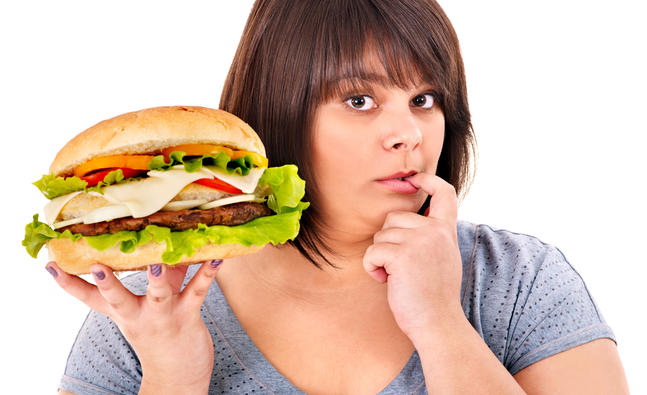The truth about âfat genesâ and your weight

Did you know that your genetic make-up not only determines the colour of your eyes and hair, it also plays a role in how you experience food?
Recent research reveals that our genes not only affect the type of foods we choose to eat, but also how much, and how often.
The relatively new area of genetic study causing waves in the world of nutrition is called nutrigenomics. It can best be described as the study of the interplay between genetics, diet and lifestyle, and how this affects individuals in their quest to achieve and maintain a so-called healthy weight.
Could a battle to lose weight be in the genes?
âIn the same way that our eye and hair colour are determined by our genes, so too is our individual response to food,â says Yael Joffe, a dietician and leading specialist in the field of nutrigenomics, and director at DNAlysis Biotechnology.
DNAlysis, which opened in South Africa in 2007, is a pioneer in the development of nutritional and lifestyle advice personalised according to an individualâs genetic makeup. This field of study is essentially corroborating what many people who have struggled with weight loss have been saying for years - âI canât help it, itâs my genes.â
âTo a certain extent, this is exactly true,â says Joffe, but she cautions that itâs not as simple as inheriting a âfatâ gene, or a âthinâ one. âWe now believe that the genetics of weight is governed by over 300 genes,â says Joffe. These gene sets include the most obvious ones, such as those that govern metabolic rates, fat absorption and exercise responsiveness; but also some less obvious and newly-discovered gene sets, such as those that govern taste, hunger and satiety.
Taste is indeed individual
âWe assume that everyone tastes food in the same way, but thatâs just not true,â says Joffe. For starters, Joffe explains, some people are what she terms âhigh tastersâ while others are âlow tastersâ.
âHigh tasters experience food flavours very strongly, while low tasters donât â itâs almost as if the flavours are duller. Because high tasters experience the full flavour of food, they tend to eat less than low tasters do in order to reach the same level of satisfaction. The research has shown that low tasters tend to have a higher body weight,â says Joffe.
Taste sensitivity is largely determined by differences in taste papillae density, which is widely believed to be genetic, although the individual gene governing this density has yet to be discovered.
In addition, within each taste sensation, of which there are five recognised by humans - sweet, bitter, sour, salty and umami, there are genes that change the way in which individuals experience these taste sensations.
âFor example, some people have an enhanced perception of bitter taste, while others have an enhanced perception of sweet,â says Joffe. The logical result is that those who have an enhanced perception of the bitter taste tend to avoid bitter foods (largely vegetables) and often end up replacing them with more energy dense foods â thereby unbalancing their diet and tending them towards a higher body weight.
By comparison, those with an enhanced perception of sweet tend to avoid foodstuffs that are too sweet â leaving them in the enviable position of not over-indulging in sweet foods, or even âcravingâ sweet foods.
âHow you taste changes your individual eating experience, which in turn impacts on food choice and thus caloric intake â ultimately affecting weight,â states Joffe.
The unique experience of hunger and satiety
In the same way that people believe we taste in the same way, they also tend to believe that we experience hunger and satiety in the same way. And again, weâre learning that this is absolutely not true, says Joffe.
She explains that people with a number of specific gene variations are simply hungrier than others, at a physiological level. âIn the past, dieticians believed that hunger was behaviourial and environmental â we now know that it is definitely also genetic.â
Satiety, how people experience being âfullâ, is also largely governed by our genes. âSome people simply feel fuller on smaller portions of food,â says Joffe. âOthers require larger food portions to achieve the same level of satiety.â
Genes have also been linked to a propensity towards binge eating and snacking, and even an increased carbohydrate intake.
Donât be too quick to blame your parents
Joffe cautions, however, that not all weight problems can be explained by genetics â of course socioeconomics and learned behaviour, as well as physiological and environmental factors play a critical role in the way in which we consume food.
âNutrigenomics has simply allowed us to understand weight more holistically, and paved the way for dieticians to create diets that are individually personalised according to a patientâs individual genetic make-up.
âA diet that is designed not only around a patientâs lifestyle but also his or her genetic propensities simply has a better chance at success,â Joffe concludes.
Reference: Grimm E, Steinle N. 'Genetics of Eating Behaviour: established and emerging concepts'. Nutrition Reviews Vol 69 (1) 52-60.
Recommended reading: 4 Weight loss habits skinny people swear by
-
Burn by bicycling!
-
Some Bad News About Those Easy One-Bowl Meals
From ancient grain bowls to mason-jar salads, one-pot meals are Instag
-
How Food Network Star Kelsey Nixon Lost 20 Pounds While in Culinary School
Its one of the questions she hears over and over again: How does Kelse
-
Have you stopped losing weight?
-
Before you start a weight loss plan...
-
Healthy breakfast alternative to muffins
- DON'T MISS
- Dont let the season determine your weight!
- The Incredible Bond Between Power Yoga And Weight Loss
- I Broke Up with My BFF—Food—and Lost Over 80 Pounds
- What You Need to Know About the DASH Diet
- 7 Foods to eat for easy weight loss - #7 will surprise you
- 5 Tricks to burn 300 calories at the office
- The essential dining out guide for dieters
- Burn calories while increasing your core strength
- Enjoy a healthy burger or hotdog
- Overweight? Get your thyroid checked!




